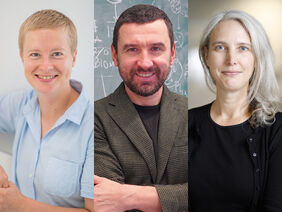Jena/Hamburg. The new Leibniz Lab "Pandemic Preparedness: One Health, One Future" integrates excellent interdisciplinary and transdisciplinary research from 41 Leibniz Institutes. In doing so, pathogen-oriented sciences (virology, bacteriology, mycology, and immunology) collaborate with other life sciences such as ecology for the first time nationwide with health technologies, health economics, and educational research. This new instrument of the Leibniz Community is funded with three million euros for three years. The aim is to bundle research activities in the aforementioned areas for preparation, prevention, and response to future pandemics and to provide acquired knowledge to political decision-makers in the form of evidence-based recommendations.
Responding to pandemics requires a concerted effort from experts in various fields. "Pandemic Preparedness" leverages the hard lessons learned from the SARS-CoV2 pandemic to adequately prepare for future pandemics. The initiative, which is part of the newly established Leibniz Labs, brings together the expertise of 41 Leibniz Institutes from various sections of the Leibniz Community, including the Leibniz Institute on Aging - Fritz Lipmann Institute (FLI) in Jena. “The Leibniz Lab is a huge step forward and a network of extraordinary significance for our institute," says Prof. Dr. Dario Riccardo Valenzano, Scientific Director of the FLI.
The Jena Institute is represented by a total of three renowned researchers. In addition to Prof. Dario Riccardo Valenzano, Prof. Dr. Claudia Waskow and Dr. Maria Ermolaeva are also part of the Leibniz Lab. "We want to ensure that society is better protected in future pandemics. This concerns the excess mortality of older citizens due to novel pathogens, but also the suffering of the young and youngest generation, who have been severely restricted in their development due to isolation," says Prof. Claudia Waskow, naming the motivation behind it. The head of the Aging Immunology department and coordinator of the network in Jena is convinced that by combining the expertise of natural science and psychosocial research areas within the Leibniz Community, future pandemics can be better addressed. Dr. Maria Ermolaeva, head of the Stress Tolerance and Homeostasis Laboratory, is also full of confidence: "This is an exciting and very important multidisciplinary project. With our work on reducing age-related metabolic comorbidities, we will make an important contribution."









